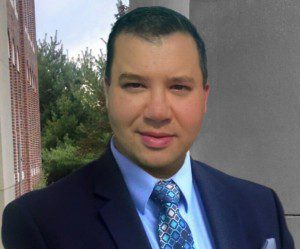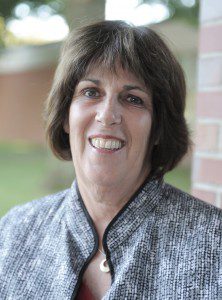WESTFIELD – The Legislative & Ordinance Committee made a negative (2-1) recommendation to the City Council Thursday to create an ordinance for Complete Streets. Ward 4 Councilor Mary O’Connell said the majority of the councilors on the committee did not find the resolution “palatable.”
“For me, there were specific hurdles I could not get over. Unfortunately, there was no ability to compromise,” O’Connell said.
Ward 1 Councilor Mary Ann Babinski, the lone dissenter on the Public Health and Safety Committee, which also negatively recommended the ordinance, did not agree.
“I’m in favor of the Complete Streets. Many communities do it,” Babinski said.
According to the MassDOT website, “a Complete Street is one that provides safe and accessible options for all travel modes – walking, biking, transit and vehicles – for people of all ages and abilities. Designing streets with these principles contributes toward the safety, health, economic viability and quality of life in a community by improving the pedestrian and vehicular environments. Providing safer, more accessible and comfortable means of travel between home, school, work, recreation and retail destinations helps promote more livable communities.”
“I don’t know how anybody could be against that. A little while ago, we just voted to become a Green Community. Massachusetts is the one state that has incentivized this program,” Babinski added. She said the state is saying if you have a place where you think you can use Complete Streets, you can apply for funding.
“I wish you could talk to other communities. I wish you would take more time. It’s a policy, a mindset,” Babinski said.
Ward 6 Councilor William Onyski said he voted against the ordinance in both L&O and Public Safety. “There is no cost analysis. We’ll have to spend extra to get money from the state, and no one knows how much,” Onyski said.
 “This really locks us in. I’d rather our employees spend our tax dollars fixing the roads than going to design conferences,” said Ward 3 Councilor Andrew K. Surprise. “We have 260 miles of road,” he added.
“This really locks us in. I’d rather our employees spend our tax dollars fixing the roads than going to design conferences,” said Ward 3 Councilor Andrew K. Surprise. “We have 260 miles of road,” he added.
L&O chair Ralph J. Figy, who voted for it in L&O, said he had some trepidation about the policy until he spoke to a councilor in South Hadley who said it was a “good deal,” and made them eligible for more funding. FIgy said that the city would not be locked into every single street.
“In the long run, if we turn this down, we’re saying we have enough money, we don’t need any more,” Figy said.
Flaherty said he agreed with the goals of making the roads accessible, but also agreed that the city might have to pay more to get funding. He called the program “state overreach.”
“If we want to put this in our streets, we can go ahead and do it,” Flaherty said.
At-large Councilor Dan Allie, a vocal opponent of the program, said it mandates all sort of things, and takes control away from city officials. “The goal seems to be to get all cities and communities to adopt the program, rather than giving us money to fix the roads,” Alie said.
“I think there is some confusion about this being state policy. The city writes our own resolution. The state isn’t dictating anything to us,” Babinski said.
The motion was moved, and adoption of Complete Streets denied 8-3.
A closer vote defeated the first pass to give the City Council its first raise in 16 years. The L&O Committee made a motion to raise the $10,000 annual salary for councilors by 30%, or $3,000, in 2018, then in $500 increments (average of 3% raises) every two years until 2026, when it would reach $15,000.
Flaherty said the $3,000 raise is an increase of only 1.6% compounded over the last 16 years. The steps going forward will be a little under 2% of an increase, he said.
When examining the proposed $3,000 increase divided by 16 – the number of years since the last Council raise in 2001 – the annual amount is $187.50, or the 1.6% per year from 2001 to 2017 Flaherty is quoted saying.
Allie made a motion to amend and remove the scheduled increases. “We should not take away from future councils,” he said.
Surprise seconded the motion, adding that he didn’t think the Council should be voting on a raise when the school department has a $2.9 million gap.
“I’m going to support this. A few of us have served 20 years. For me, it’s a matter of losing money. It may not affect all of us,” said O’Connell, noting that the first increase takes place after the election. She also said she did not support Allie’s amendment.
The amendment to remove the step increases was voted down 8-3.
“I’m torn on this now. We’re looking at pretty massive cuts,” said At-large Councilor Steven Dondley, who made a motion to reduce the increase to $2,000. His motion was not seconded.
“I’m going to vote against it, as I did in committee. When I ran, I knew it was $10,000. I’m not making money, I’m spending it,” said Onyski.
“When I first ran, I didn’t even know we got paid. For those who want to donate their money, they can. There are opportunities to give that money back to the city. I happen to like the schools for this, because they are needy,” Flaherty said.
“Ditto to most of that. A reminder to us all, we’re not acting for ourselves right now, but for those sitting here in 2018, whoever they are,” Babinski said.
The original motion to increase the salary by $3,000 with steps was defeated 6 for and 5 against, with 7 votes required for passage. First-term members Dondley, Onyski and Surprise voted against it along with At-large Councilors Matthew T. VanHeynigen and Cindy C. Harris.
Flaherty made a motion to reconsider at the next meeting, which passed.
After the meeting, Flaherty said that he made the motion to reconsider because two councilors, Robert A. Paul, Sr. and Daniel Knapik were absent.
“I think it’s going to pass,” Flaherty said.
He said that every vote can by reconsidered, from the prevailing side on the same night and from the non-prevailing side at the next meeting. He said usually that happens when people are absent. When a vote from a prevailing side is reconsidered, usually that’s to get a unanimous vote.
He also said if Councilors are absent at the next meeting, they can table the vote.
“I think we’ll have seven votes,” he said.
When asked if any other committees are tied to the pay of the City Council, Flaherty acknowledged that the Westfield Energy Advisory Committee of Westfield Gas & Electric, also known as the Municipal Light Board, receives half of the salary of the City Council. If the council approves increasing their own pay then by default the Municipal Light Board Commissioners annual pay is also increased.
The Municipal Light Board Commissioners currently receive $5,000 per year each and that would increase to $6,500 in 2018, which is half the amount proposed for the City Council, topping out at $7,500 in 2026.
He said its members’ pay comes out of the G&E budget, and won’t impact the city’s general operating budget.
“They don’t get paid as much as we do,” Flaherty said.



